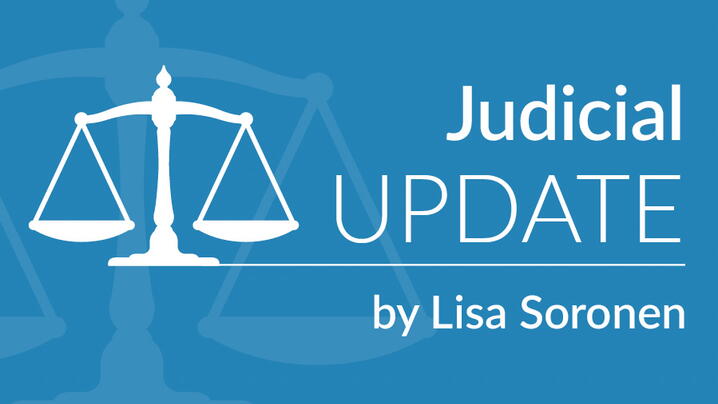
by Lisa Soronen, executive director, State and Local Legal Center
In Maryland-National Capital Park and Planning Commission v. American Humanist Association, the Supreme Court will decide whether a local government has violated the First Amendment by displaying and maintaining a 93-year-old, 40-foot-tall Latin cross memorializing soldiers who died in World War I.
Prince George’s County citizens and an American Legion Post raised money to build the monument. In 1925 it was dedicated at a Christian prayer service. Over the years Christian religious services have been held at the cross.
In 1961 the Maryland-National Capital Park and Planning Commission took title of the land and the cross because it is located in the middle of a busy traffic median. The cross is part of a park honoring veterans. Other monuments are located anywhere from 200 feet to a half-mile from the cross. None are taller than 10 feet.
The First Amendment’s Establishment Clause prohibits the government from establishing religion. The Fourth Circuit applied the so-called three-prong Lemon test, as modified by the Supreme Court’s most recent monument decision Van Orden v. Perry (2005), to conclude that the government display and maintenance of this cross violates the Establishment Clause.
The lower court first concluded that the cross has a secular purpose, thus passing the first prong of the Lemon test. Specifically, the commission obtained the cross to maintain safety near a busy highway intersection and preserves the memorial to honor World War I soldiers.
But the Fourth Circuit concluded that a reasonable observer would understand this cross to advance religion. The Latin cross is the “preeminent symbol of Christianity.” While the cross has secular elements (such as the words "valor, endurance, courage, and devotion" inscribed on its base, and a plaque at the base listing the memorialized soldiers), the “immense size and prominence of the Cross” “evokes a message of aggrandizement and universalization of religion, and not the message of individual memorialization and remembrance that is presented by a field of gravestones.”
The Fourth Circuit also concluded that the cross fails Lemon’s third prong because it creates an excessive entanglement between government and religion. First, the Commission has spent $117,000 to maintain and repair it. In 2008 it set aside an additional $100,000 for renovations. “Second, displaying the Cross, particularly given its size, history, and context amounts to excessive entanglement because the commission is displaying the hallmark symbol of Christianity in a manner that dominates its surroundings and not only overwhelms all other monuments at the park but also excludes all other religious tenets.”
A dissenting judge criticized the court’s opinion for, among other reasons, making too much of the monument’s size. “Although a reasonable observer would properly notice the memorial’s large size, she would also take into account the plaque, the American Legion symbol, the four-word inscription, its 90-year history as a war memorial, and its presence within a vast state park dedicated to veterans of other wars.”
This case may have a big impact on state and local governments across the country that own land with veteran’s memorials containing religious symbols. According to an amicus brief joined by nearly 30 state attorneys general: “There are at least 242 national and state cemeteries honoring U.S. veterans, and countless more memorials on public lands nationwide—from Arlington National Cemetery and Civil War battlefields, to state capitols and town squares.”
New, Reduced Membership Dues
A new, reduced dues rate is available for CAOs/ACAOs, along with additional discounts for those in smaller communities, has been implemented. Learn more and be sure to join or renew today!
